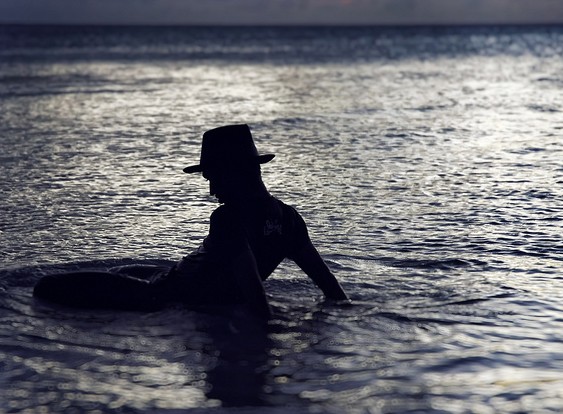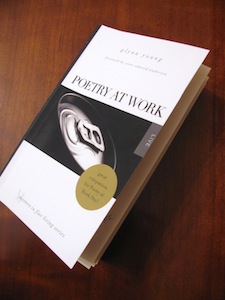The Poetry of Organizational Regime Change
It happens to virtually every organization: a crisis, an executive retirement, an executive leaving, some outside influence or event. The organization, meaning the people who are the organization, finds itself in the midst of an organizational convulsion.
I call it regime change. And there’s poetry at work here, too.
It’s different from classic reorganizations; those are usually, or typically, undertaken by existing management. Regime change usually comes from outside the day-to-day organization—another part of the company takes over, a new CEO arrives, the Board of Directors decides a change is needed, a financial crisis hits, a reputational crisis hits, and many other reasons.
Regime change may be the most difficult of all organizational changes to experience. Three things are happening simultaneously: the old way of doing things is being discredited; a new organization and leadership are being put in place; and the new regime is discovering that problems and crises always look easier to address and solve when you don’t have responsibility for them.
There’s a kind of figurative violence to regime change. Programs may be discontinued, often abruptly; the previous leadership is displaced, often disappearing overnight (frequently referred to as “editing the Soviet encyclopedia, ” when pictures and biographies of displaced leaders were cut out); and yet the problems continue because the new solutions haven’t been put in place. The anxiety often increases when parts of the organization begin to come together while others are temporarily on the sidelines.
Many things in the organization that need to change will be changed; many things that don’t need to change will also change. When the desire to change the bathwater is overwhelming, the baby doesn’t stand much of a chance.
I’ve been reading Run with the Hunted: A Charles Bukowski Reader, edited by John Martin. My copy is a rather battered paperback edition, published in 1994 and picked up for a dollar at a used book sale. Bukowski (1920 -1994) was a novelist, poet, and short story writer, often revered and sometimes reviled. Run with the Hunted is a collection of both prose and poetry, and it reads almost like a chronology of his life. The rather mechanical eroticism aside, what I find personally troubling in many of the pieces and poems in that they tend to objectify, and almost depersonalize, women. An undercurrent of violence seems to run through much of the writing as well.
Then I read this poem, and immediately thought of regime change.
Spring Swan
swans die in the Spring too
and there it floated
dead on a Sunday
sideways
circling in current
and I walked to the rotunda
and overheard
gods in chariots
dogs, women
circled,
and death
ran down my throat
like a mouse,
and I heard the people coming
with their picnic bags
and laughter,
and I felt guilty
for the swan
as if death
were a thing of shame
and like a fool
I walked away
and left them
my beautiful swan.
Regime change in organizations can bring the death of the bad and the good, and the beautiful swan, floating dead in the water, may simply need to be abandoned, and walked away from. Few other options exist.
Years ago, I worked for an organization that went through two successive regime changes. The violence done was significant. One regime was replaced, and then three years later the new regime itself was replaced, in much the same way as the first. These things can become circular, and I found a Bukowski poem for that situation as well. In fact, this may be one of the best selections I read in the entire 497-page reader.
helping the old
I was standing in line at the bank today
when the old fellow in front of me
dropped his glasses (luckily, with the
case)
and as he bent over
I saw how difficult it was for
him
and I said, “wait, let me get
them…”
but as I picked them up
he dropped his cane
a beautiful, black polished
cane
and I got the glasses back to him
then went for the cane
steadying the old boy
as I handed him his cane.
he didn’t speak,
he just smiled at me.
then he turned
forward.
I stood behind him waiting
my turn.
Even in the worst of organization upheavals, there is always poetry. It may not help our best programs and work to survive, but it will certainly help us understand it, and understanding is a kind of endurance.
Image by notsogoodphotography. Sourced via Flickr. Post by Glynn Young, author of the novels Dancing Priest and A Light Shining, and the just-published Poetry at Work (T. S. Poetry Press).
_____________________________
Poetry at Work, by Glynn Young, foreword by Scott Edward Anderson
“This book is elemental.”
—Dave Malone
- Longfellow’s “Paul Revere’s Ride”: Creating a National Legend - April 17, 2025
- Poets and Poems: Katie Kalisz and “Flu Season” - April 15, 2025
- Poets and Poems: Michelle Ortega and “When You Ask Me, Why Paris?” - April 10, 2025



Maureen Doallas says
Two wonderful poems to illustrate your topic today. Someone could spend reams on deconstructing that first one, the loss is exquisitely tender. And the last two lines of the second poem make the poem; who could not identify with their universality?
For those wanting to learn more about Bukowski, and I encourage they do, go to: http://bukowski.net/ The site has his FBI files, which themselves could be the source of poems.
nance.mdr says
regime
the word certainly has a certain feel to it